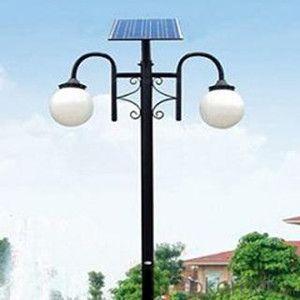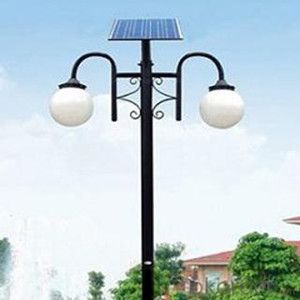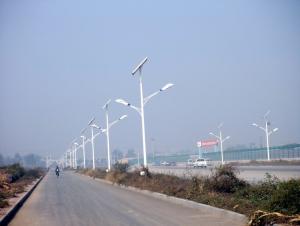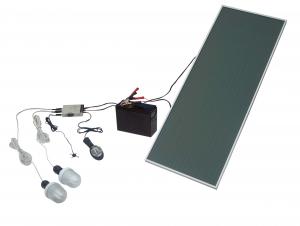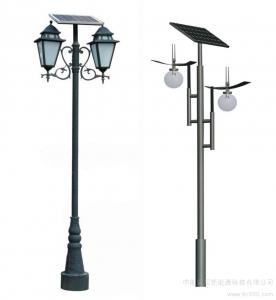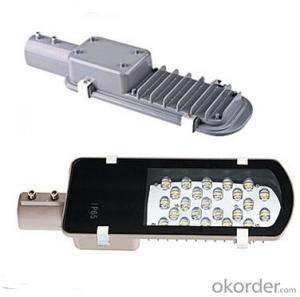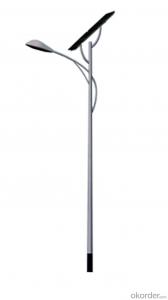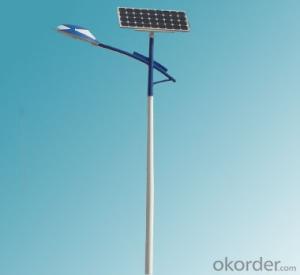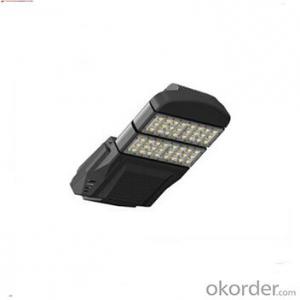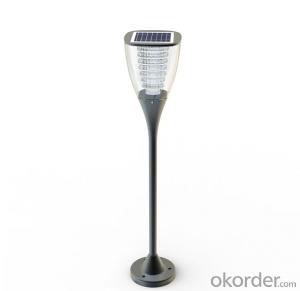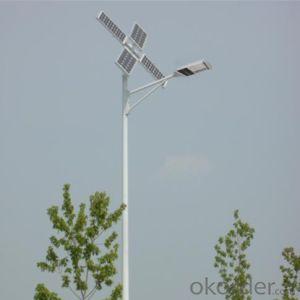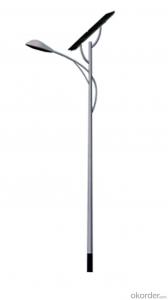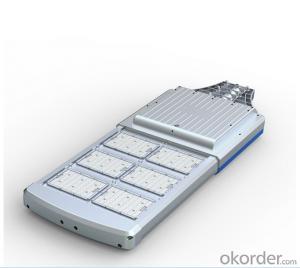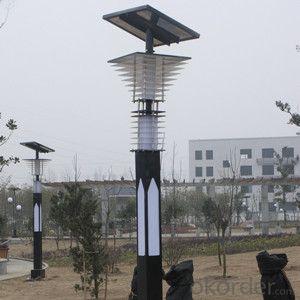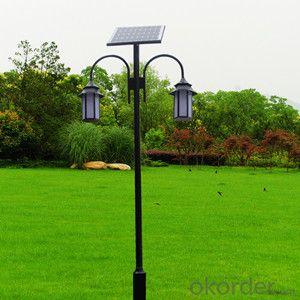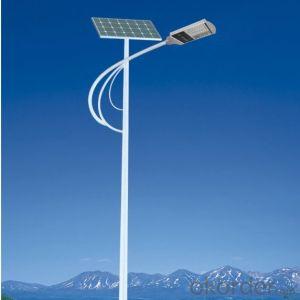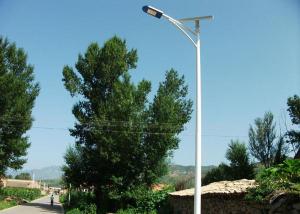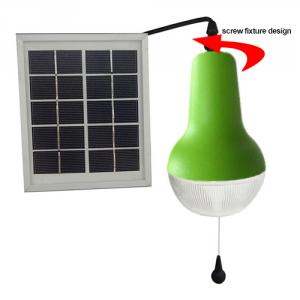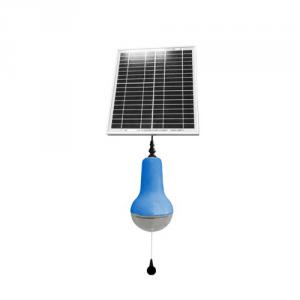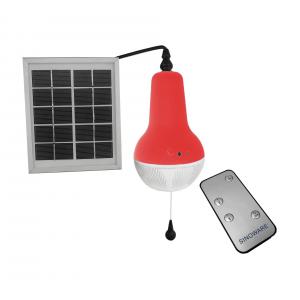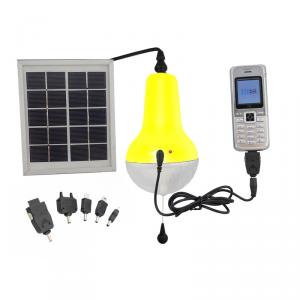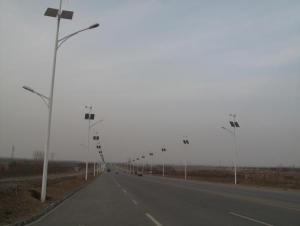Solar Light Post Home Depot LED Solar Street Lights JMTT-011
- Loading Port:
- Shanghai
- Payment Terms:
- TT OR LC
- Min Order Qty:
- 10 pc
- Supply Capability:
- 10000 pc/month
OKorder Service Pledge
Quality Product, Order Online Tracking, Timely Delivery
OKorder Financial Service
Credit Rating, Credit Services, Credit Purchasing
You Might Also Like
| No. | Model | Specification | Lifetime | Guarantee | Certificate |
| 1 | Pole | hot zinc-plated steel metallic paint, color could be customized , with all-stainless steel fasteners, 2.8-3.5m height | 20years | 10 years | CE |
| 2 | Lamp | LED ball lamp (color optional), 5W, 7W, 9W | 80000hrs | 5 years | CE. ROHS |
| 3 | Controller | Solar intelligent special controller, with light control switch | 3-5years | 3 years | CE. ROHS |
| 4 | Solar Panel | 20W ~ 60W imported poly-crystalline silicon solar cell module dedicated service life of 20 years | 20years | 5 years | TUV |
| 5 | Battery | 25AH ~ 70AH maintenance-free lead-acid battery, overcharge and over discharge protection, 3 years life. | 7-8years | 3 years | UL |
| 6 | Accessories | Panel bracket, base anchor bolts, cables, fasteners ect. | 10years | 3 years | CE |
| Please contact our sales for suitable system design! | |||||
- Q: Can solar lights be used for camping trailers or RVs?
- Yes, solar lights can be used for camping trailers or RVs. They are a great alternative to traditional lighting options as they are portable, energy-efficient, and environmentally friendly. Solar lights can be easily installed on the exterior or interior of camping trailers or RVs, providing illumination without the need for electricity or batteries. They can also be used to light up the campsite area around the vehicle. Overall, solar lights are a practical and convenient lighting solution for camping trailers or RVs.
- Q: Are solar lights suitable for coastal areas?
- Yes, solar lights are generally suitable for coastal areas. However, it is important to consider the specific conditions of the area, such as the level of salt spray, high winds, and potential corrosion. Solar lights designed for coastal areas should be made of durable materials and have proper waterproofing to withstand these conditions.
- Q: Can solar lights be used in areas with heavy shade or tree cover?
- Solar lights are specifically designed to capture sunlight and convert it into energy to power their light sources. However, in regions with dense shade or a large number of trees, the availability of direct sunlight may be restricted, which can have an impact on the performance of solar lights. Although solar lights can still function to some extent in shaded areas, their effectiveness and brightness may be significantly reduced. The extent of shade or tree cover directly influences the amount of sunlight that reaches the solar panels of the lights. If the shade is partial or the tree cover is not overly dense, solar lights may still receive sufficient sunlight during certain periods of the day to charge their batteries and provide some illumination at night. Nevertheless, in areas with heavy shade or thick tree cover, solar lights may struggle to obtain enough sunlight to adequately charge their batteries. This can lead to reduced light output and shorter operating times. Additionally, frequent interruptions in charging can result in the deterioration of solar light batteries over time, lowering their overall lifespan. It is worth noting that there are certain types of solar lights, such as those equipped with separate solar panels connected by a cable, which can be advantageous in shaded areas. These lights enable the solar panel to be positioned in a sunny location while the light itself can be installed in a shaded area. This allows the solar panel to still receive abundant sunlight, while the light can be situated in an area with heavy shade or tree cover. To sum up, although solar lights can still be utilized in areas with heavy shade or tree cover, their efficiency and performance may be compromised. It is advisable to evaluate the level of shade or tree cover in the intended installation area and consider alternative lighting options, such as electric-powered lights, if direct sunlight is limited.
- Q: Can solar lights work during cloudy days?
- Yes, solar lights can still work during cloudy days. Although the efficiency may be reduced, they are designed to collect and store energy during sunny periods, which can be used to power the lights even when the sun is not directly visible.
- Q: Can solar lights be installed in shaded areas?
- Although shaded areas can accommodate the installation of solar lights, their performance and efficiency are likely to be significantly diminished compared to areas with direct sunlight. The functionality of solar lights is reliant on sunlight, which charges their batteries during the day to provide power during the night. In shaded areas, the amount of sunlight received is restricted, causing the batteries to potentially not reach full charge. Consequently, this can result in shorter operating times or a dimmer light output. Furthermore, solar lights placed in shaded areas may necessitate more frequent maintenance and battery replacements due to the reduced charging capacity. It is crucial to thoroughly assess the amount of sunlight available in a shaded area before installing solar lights, ensuring they satisfy the desired lighting requirements.
- Q: Are solar lights resistant to insects or pests?
- Solar lights are typically able to withstand insects and pests. Most solar lights come with a protective casing or housing that prevents insects or pests from getting inside. Moreover, they are designed with sealed components to minimize the chance of insects or pests damaging the internal wiring or battery. Nevertheless, it is worth mentioning that although solar lights resist insects or pests, they might still attract bugs because of their light source. In these situations, regular cleaning and maintenance can be effective in preventing any problems.
- Q: Can solar lights be used in rural areas?
- Solar lights can indeed be utilized in rural areas, serving as an exceptional lighting solution for regions devoid of electricity. Given the abundance of sunlight in rural areas, solar lights are capable of harnessing this energy and converting it into electricity to power the lights. Consequently, the necessity for expensive and inconvenient electrical infrastructure is eliminated, rendering solar lights a practical and sustainable option for rural communities. Furthermore, solar lights are simple to install and maintain, and in the long run, they often prove to be more cost-effective than traditional lighting systems. Consequently, they can furnish rural households, schools, and community centers with a dependable source of illumination, thereby enhancing safety, productivity, and access to vital services even after sunset.
- Q: Do solar lights have adjustable timer settings for specific hours of operation?
- Yes, some solar lights have adjustable timer settings that allow users to set specific hours of operation according to their preferences.
- Q: Are there solar lights with built-in Wi-Fi connectivity?
- Yes, there are solar lights available in the market that come with built-in Wi-Fi connectivity. These solar lights are designed to provide both lighting and wireless connectivity, making them ideal for various applications. With built-in Wi-Fi, these solar lights can connect to your home network and allow you to control and monitor them remotely through a smartphone app or a web portal. This connectivity feature enables you to adjust the brightness, set timers, and even receive notifications about the status of your solar lights. Additionally, some solar lights with Wi-Fi connectivity also offer advanced features like motion sensors, security cameras, or integration with smart home systems. Overall, these solar lights with built-in Wi-Fi provide a convenient and energy-efficient lighting solution while offering the added benefits of wireless connectivity.
- Q: What are the components of a solar light?
- A solar light generally consists of various components, including a solar panel, battery, LED bulb, controller, and sometimes a photocell. The solar panel's function is to convert sunlight into electricity and typically comprises multiple solar cells. This electricity is then stored in the battery for future use. The LED bulb is responsible for emitting light and is highly efficient, consuming less energy compared to traditional light bulbs. The controller regulates the flow of electricity from the solar panel to the battery and LED bulb, ensuring optimal performance and preventing overcharging or discharging. Additionally, certain solar lights may also incorporate a photocell, which detects ambient light levels and automatically turns the light on or off accordingly.
Send your message to us
Solar Light Post Home Depot LED Solar Street Lights JMTT-011
- Loading Port:
- Shanghai
- Payment Terms:
- TT OR LC
- Min Order Qty:
- 10 pc
- Supply Capability:
- 10000 pc/month
OKorder Service Pledge
Quality Product, Order Online Tracking, Timely Delivery
OKorder Financial Service
Credit Rating, Credit Services, Credit Purchasing
Similar products
Hot products
Hot Searches
Related keywords
